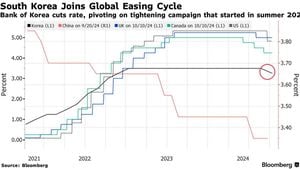The University of Toronto (U of T) has once again proven its academic prowess by securing the top position among Canadian universities and ranking 21st globally out of 300 institutions across 38 countries, as revealed by the recent Times Higher Education Academic Reputation Survey. This marks the fourth consecutive year U of T has maintained its prestigious spot, demonstrating its strong global presence.
“This ranking once again emphasizes how highly the University of Toronto’s teaching and research is regarded by academics around the world,” said Trevor Young, U of T’s Vice-President and Provost.
The survey, conducted between November 2023 and January 2024, garnered over 55,000 responses from scholars across 193 countries, who nominated more than 7,200 institutions and cast over 750,000 votes. Notably, U of T ranked 12th overall among public universities and 4th within North America.
The updated methodology introduced this year assigns equal weight to teaching and research, with additional lenses for assessing institutions. Notable global competitors included Harvard University at first place, followed by the Massachusetts Institute of Technology and the University of Oxford tied for second, and Stanford University and Cambridge jointly at fourth.
U of T’s remarkable recognition aligns with other accolades, including last fall’s Times Higher Education World University Rankings, where it also claimed the 21st position globally. U of T remains the highest-ranked Canadian university across five major international rankings, marking its leading status within the academic community.
Turning to health innovations, researchers from Sinai Health and U of T have published groundbreaking findings aimed at predicting preterm births. The study, featured recently in JAMA Network Open, indicates low levels of placental growth factor (PlGF) as strong indicators for preterm delivery, potentially paving the way for universal screening strategies. PlGF is integral for placental development, promoting relaxation of the maternal blood vessels and stabilizing blood pressure during pregnancy.
Fourth-year obstetrics resident Rachel Gladstone, who led the study alongside clinician-scientist John Kingdom, explained the potential life-saving impact: “If you know in advance you’re at high risk, there are ways to improve pregnancy outcomes.”
Testing PlGF levels could enable doctors to provide timely monitoring and care for expectant mothers, particularly those whose PlGF levels fall below 100 picograms per milliliter, placing them at almost 50-fold higher risk for delivering before 34 weeks.
The research, conducted from 2020 to 2023, involved over 9,000 mothers, emphasizing the importance of this biomarker across diverse demographics — showing no correlation between factors like weight, race, or previous pregnancies. The study suggests hospitals could implement this simple blood test, leading to significant healthcare advancements and cost savings.
Meanwhile, Michelle Lai, currently pursuing her degree at U of T, was honored with the 2025 Troost ILead Difference Maker Award, receiving $50,000 for her impactful work focused on youth education. Lai’s motivation stems from her personal experiences as an immigrant struggling with language barriers and finding solace through nurturing educators.
Her extensive volunteering, particularly during her high school years, ignited her passion for community leadership, as she recalls: “Seeing others’ passion for improving the community... I discovered my love for community leadership.” Lai brings her experiences together through industrial engineering, working on her mobile app, PeaceOfMind, created to reduce pre-operative anxiety among children facing surgery involving anesthesia.
This initiative was awarded first place at the 2023 HFES Mobile Health App Design Competition. “The statistics show 60% of children facing operations with anesthesia struggle with pre-operative anxiety, which can negatively affect their recovery,” she noted. Lai’s app strives to provide young patients with accessible and familiar resources, easing their stress during medical processes.
Looking forward, U of T will hold its annual Entrepreneurship Week from March 3 to 7, 2025. Highlighting U of T's flourishing entrepreneurship ecosystem, the week includes over 18 events, such as the True Blue Expo, pitch competitions, and talks by renowned speakers including the “godfather of AI,” Geoffrey Hinton, who was recently awarded the 2024 Nobel Prize. Hinton’s conversation will focus on Canada’s role within the AI revolution, alluding to the significant innovations being developed through U of T’s entrepreneurial spirit.
Jon French, director of U of T Entrepreneurship, emphasized the importance of this event for both the university and the broader community: “It’s about bringing together the entire University of Toronto startup ecosystem – researchers, entrepreneurs, accelerators, investors, corporate partners, and community organizations.”
Anticipation builds around the 2025 Desjardins Startup Prize Pitch Competition, offering participants the chance to win over $100,000 in prize money. Following past successes of the competition, many startups see it as the launchpad for future investments and partnerships.
Through these various initiatives and accomplishments, U of T continues to empower its community, connecting academic excellence with real-world applications and fostering innovation across diverse fields. Offering insights and opportunities, the university is well-positioned to inspire the next generation of leaders and groundbreakers.
U of T remains steadfast, climbing higher on the global stage, as its teaching, research, and community efforts continue to create ripples of positive change both locally and internationally. The university's drive toward innovation and inclusivity reflects its commitment to nurturing talent and facilitating growth, paving the way for future academic and entrepreneurial triumphs.



